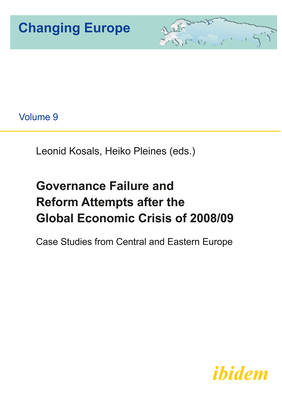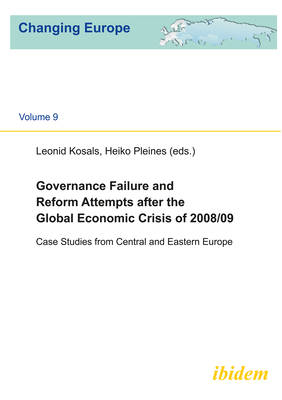
- Retrait gratuit dans votre magasin Club
- 7.000.000 titres dans notre catalogue
- Payer en toute sécurité
- Toujours un magasin près de chez vous
- Retrait gratuit dans votre magasin Club
- 7.000.0000 titres dans notre catalogue
- Payer en toute sécurité
- Toujours un magasin près de chez vous
Governance Failure and Reform Attempts After the Global Economic Crisis of 2008/09
Case Studies from Central and Eastern Europe
36,95 €
+ 73 points
Description
The global economic crisis of 2008/2009 has had a broad impact far beyond economic concerns. Most importantly, it has been seen as a crisis of governance and debates have not just questioned specific regulations, e.g. of global financial markets, but have additionally challenged the appropriateness of underlying governance concepts not only in global markets, but also at the national level.
For the post-socialist countries, which adopted market-oriented governance mechanisms less than two decades ago, the global crisis was the first stress test after the post-socialist recovery. The contributions in this book focus on the impact of the crisis and related reform attempts in two important areas. The first area is financial and monetary policy, which is at the core of the global crisis of 2008/2009. The second area is relations between business and state actors, where corruption and weak institutional frameworks can both seriously hamper reform attempts. The volume comprises essential contributions on how the post-socialist countries have tried to cope with the first global economical crisis they saw themselves confronted with.Spécifications
Parties prenantes
- Editeur:
Contenu
- Nombre de pages :
- 238
- Langue:
- Anglais
- Collection :
- Tome:
- n° 9
Caractéristiques
- EAN:
- 9783838203362
- Date de parution :
- 01-08-12
- Format:
- Livre broché
- Format numérique:
- Trade paperback (VS)
- Dimensions :
- 148 mm x 210 mm
- Poids :
- 290 g

Les avis
Nous publions uniquement les avis qui respectent les conditions requises. Consultez nos conditions pour les avis.





